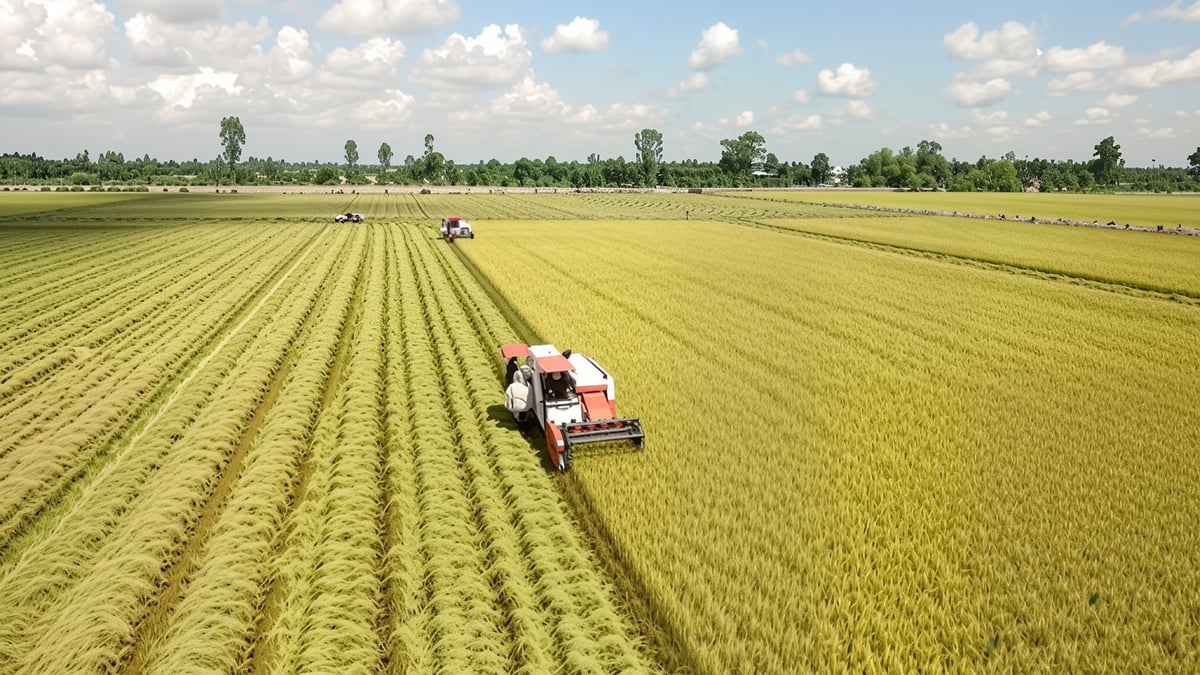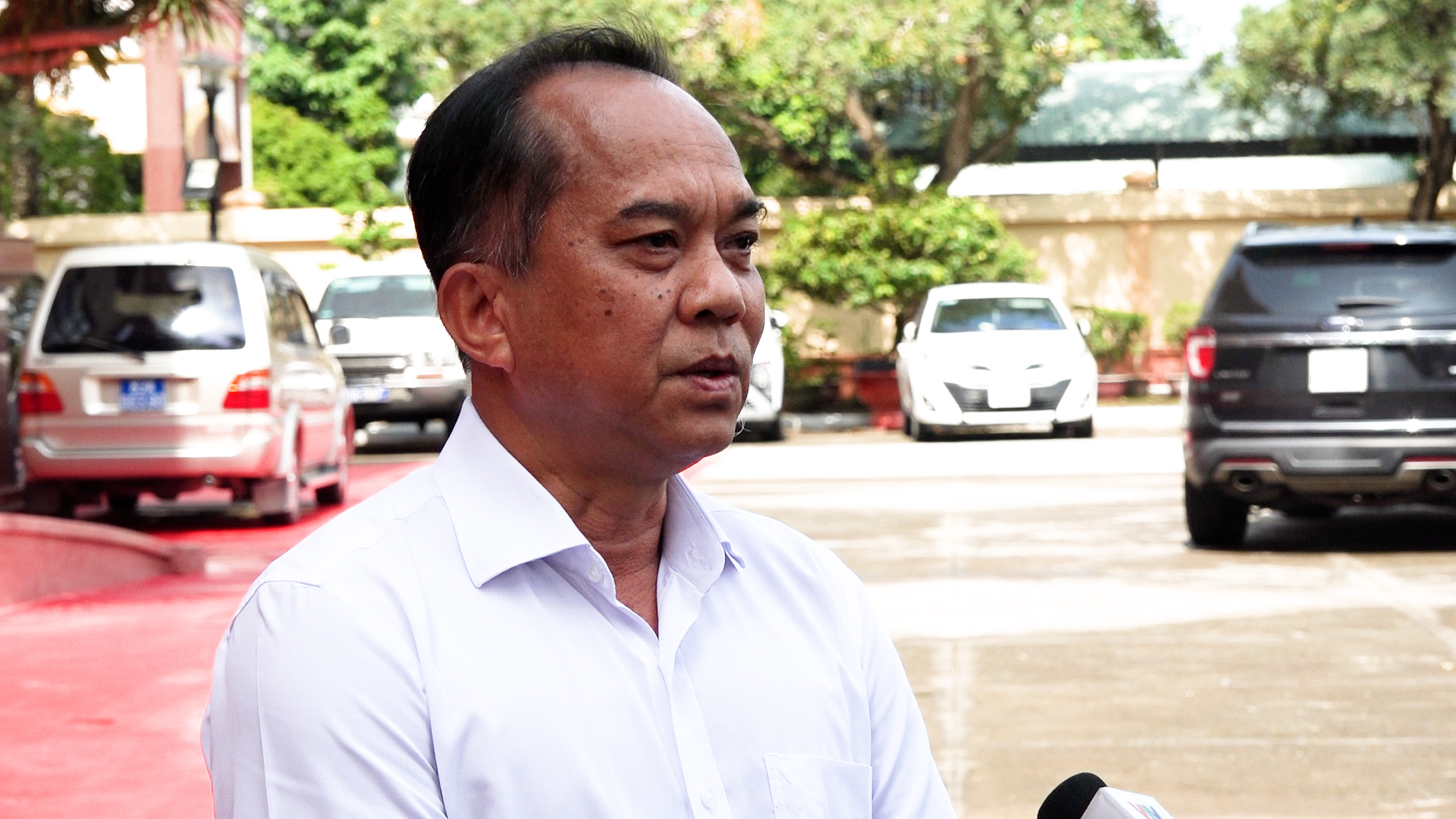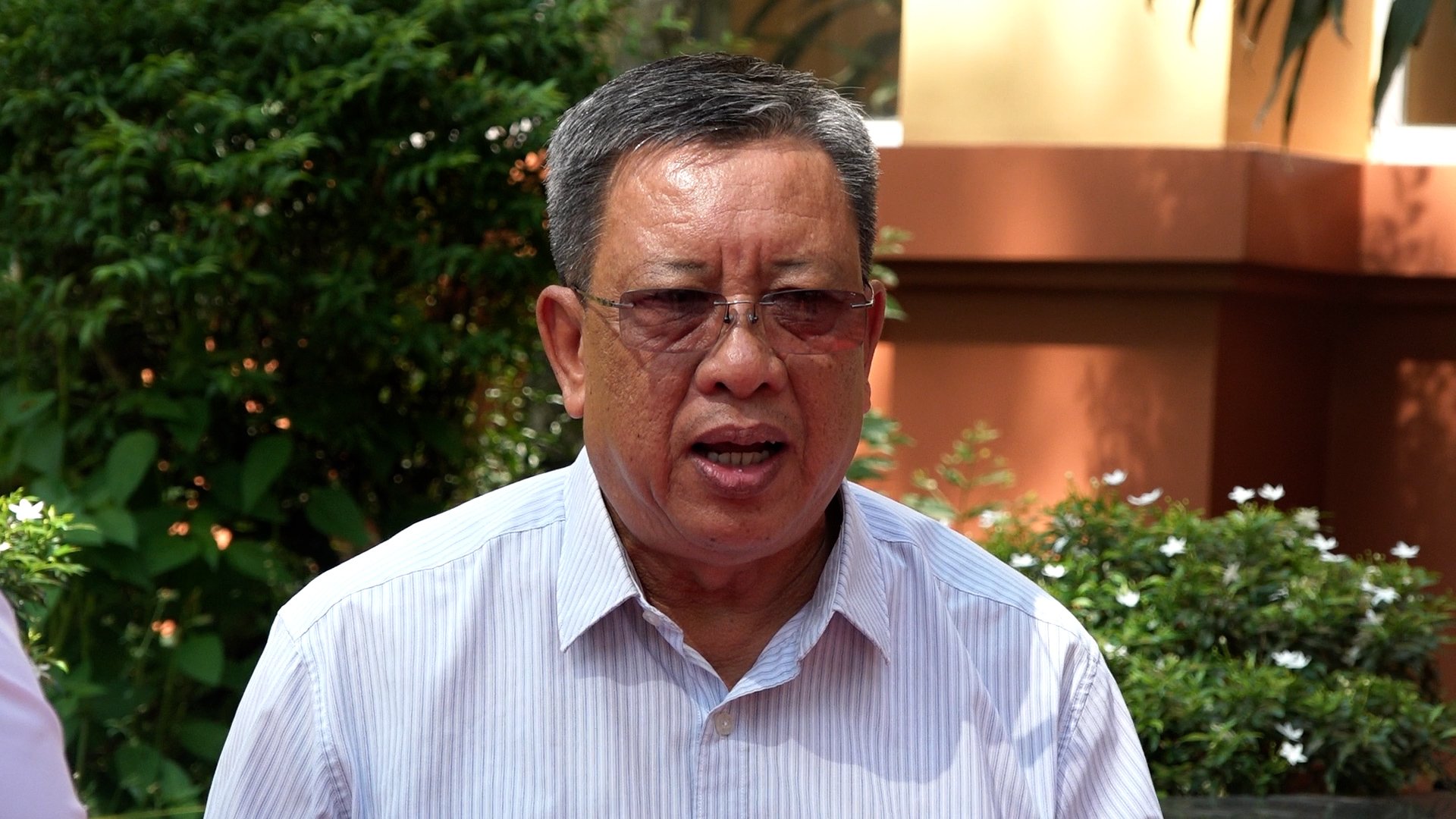December 19, 2025 | 03:45 GMT +7
December 19, 2025 | 03:45 GMT +7
Hotline: 0913.378.918
December 19, 2025 | 03:45 GMT +7
Hotline: 0913.378.918

Rice harvest in An Giang. Photo: Ho Thao.
According to Mr. Tran Thanh Hiep, Deputy Director of the An Giang Department of Agriculture and Environment, the Philippines’ temporary suspension of rice imports not only directly affects the domestic rice market but also poses a challenge for the upcoming autumn-winter crop. The first planting of this crop was completed over a month ago, meaning that in the next 60 days, when harvesting begins, difficulties in selling may recur. Mr. Hiep emphasized the need for careful planning to ensure rice sales for farmers.
He also noted the importance of focusing on potential markets such as Japan and South Korea, and called for obtaining international certifications for Vietnamese “green rice” to enhance its value and reputation. Previously, Vietnam exported a batch of rice to France, but more international certifications are needed to expand into additional markets.
Regarding cooperatives, An Giang currently has about 700, with an average of 50–60 members each. However, their capacity remains limited, and they require training and enhancement to participate effectively in rice marketing and storage for farmers.
So far, An Giang has harvested approximately 440,000 hectares, a 2% reduction compared to the plan, equivalent to 66,000 hectares, leaving an estimated 4 million tons of rice. “Therefore, the need for coordinated rice marketing and storage solutions for farmers is very urgent,” Mr. Hiep said.

Mr. Tran Tan Duc reported that although rice imports are officially scheduled to resume in November, Philippine traders have already placed orders in recent days. Photo: Ho Thao.
Meanwhile, Mr. Tran Tan Duc, General Director of Southern Food Corporation (Vinafood 2), stated that as soon as rice prices dropped, the Government, Ministry of Finance, and National Reserve Agency purchased 200,000 tons of rice, helping to stabilize prices.
To address the situation, Vinafood 2 has sought alternative markets to avoid dependence on a single key market. Mr. Duc recommended that the Government provide financial support to enterprises for rice procurement, helping them maintain operations during difficult periods. In the long term, businesses need to promote trade, expand markets, leverage trade agreements and traditional markets, and assist farmers in effectively selling their rice.
Mr. Duc added, “Currently, some enterprises have shifted focus to African and other lower-tier markets. Several contracts have been signed and shipments are underway, including by Vinafood 2. A new signal from the Philippines, although officially resuming imports in November, shows that in recent days traders have already started placing orders. We remain cautious and manage risks, but positive signals have returned.”
So far, Vietnam’s rice exports have reached nearly 3 million tons, with over 2 million tons shipped to other markets. The Philippines is expected to import an additional 0.5–1 million tons, as Vietnamese rice remains competitively priced.
Mr. Le Thanh Tung, Vice Chairman and General Secretary of the Vietnam Rice Sector Association, noted that the country produces about 43 million tons of rice annually, with the Mekong Delta contributing roughly 25 million tons, yielding 12–13 million tons of milled rice, of which about 7 million tons are exported. A sustainable plan is to maintain stable production or achieve slight increases. Reducing planted area or yield would affect hundreds of thousands of households. Therefore, policies should encourage farmers rather than letting them arbitrarily reduce cultivation.

Mr. Le Thanh Tung, Vice Chairman and General Secretary of the Vietnam Rice Sector Association, emphasized that reliance should not be placed on short-term markets but rather on long-term forecasts. Photo: Ho Thao.
Planning national rice production should not rely on short-term markets but be based on long-term forecasts. Global rice production and trade remain largely stable at around 51–52 million tons, meaning countries will share markets, reducing concerns over stockpiling or inventory fluctuations.
The entire rice value chain, from farmers, cooperatives, and input suppliers to procurement, milling, export, and domestic consumption, must be addressed comprehensively. Focusing only on the final stage creates imbalances and disadvantages for many stakeholders. Short-term policies support businesses, but in the long term, investment in cooperatives capable of storing rice for 30–40 days maximizes benefits more effectively than merely supporting enterprises.
Only efficient production and building strong interactions among businesses, cooperatives, and farmers can overcome challenges. This approach aligns with the Sustainable Development Plan for high-quality rice cultivation, emission reduction, and green growth in the Mekong Delta through 2030.
Translated by Phuong Linh
/2025/12/16/3554-1-192458_116.jpg)
(VAN) Minister Tran Duc Thang held a working session with the Viet Nam Seaculture Association to discuss solutions for developing marine farming in a methodical, industrial, sustainable, and well-organized manner.

(VAN) Trading forest carbon credits is to reduce greenhouse gas emissions while creating sustainable livelihoods for local communities.

(VAN) Expanding the area of forests with FSC certification creates a foundation for elevating the economic value of forests, promoting sustainable management, and offering opportunities to participate in the carbon credit market.

(VAN) MAE and GIZ organized the conference to strengthening capacity and readiness for EUDR implementation in Vietnam.

(VAN) When women, men, children, and people with disabilities all have the opportunity to maximize their potential, the economy will grow, and the country will prosper.

(VAN) Effective disaster prevention and the creation of sustainable livelihoods through practical forestry policies are the distinct and crucial values of special-use and protection forests.

(VAN) The policy movement regarding carbon emission reduction is opening up a new approach, linking national goals with practical agricultural production.